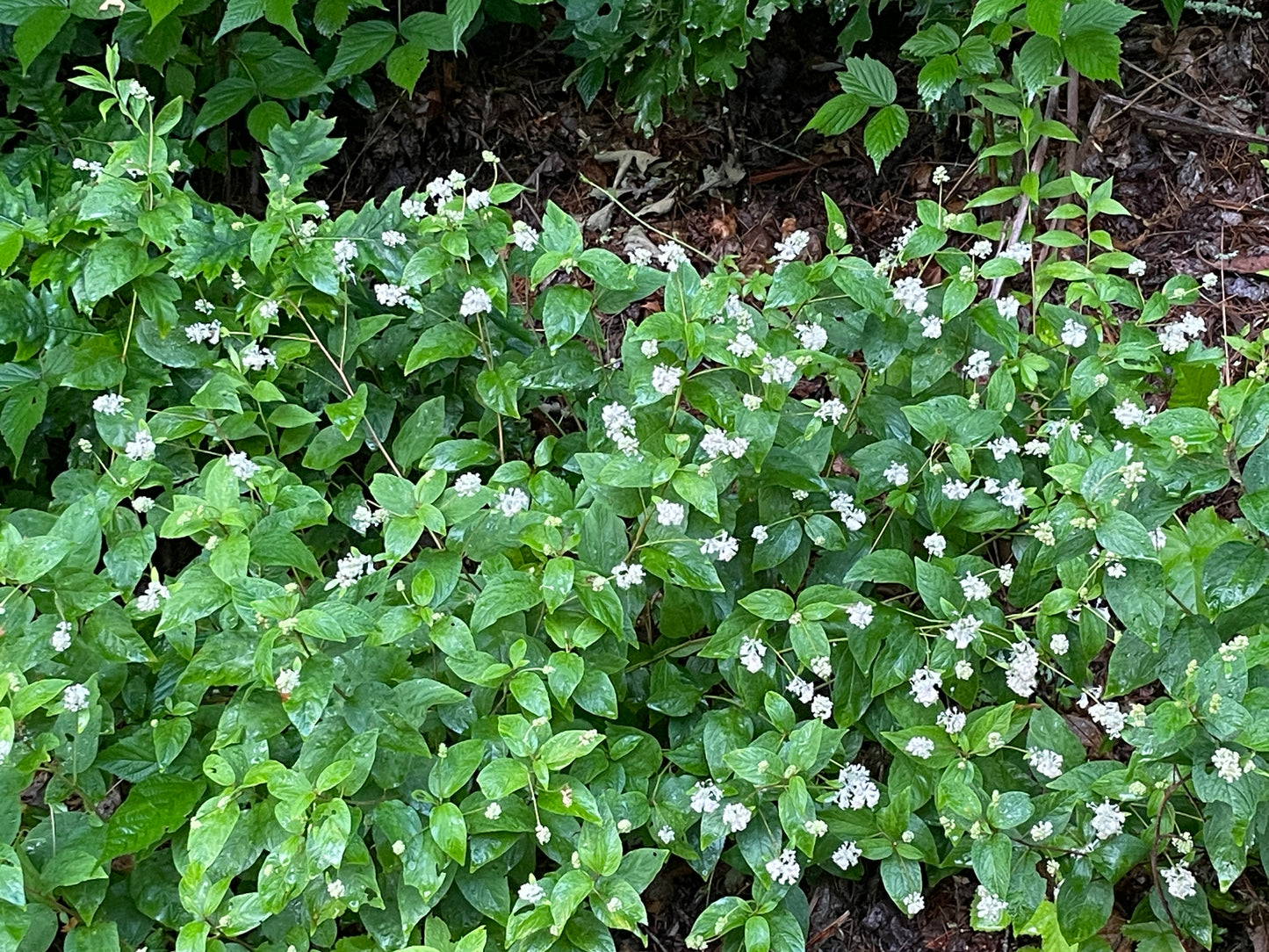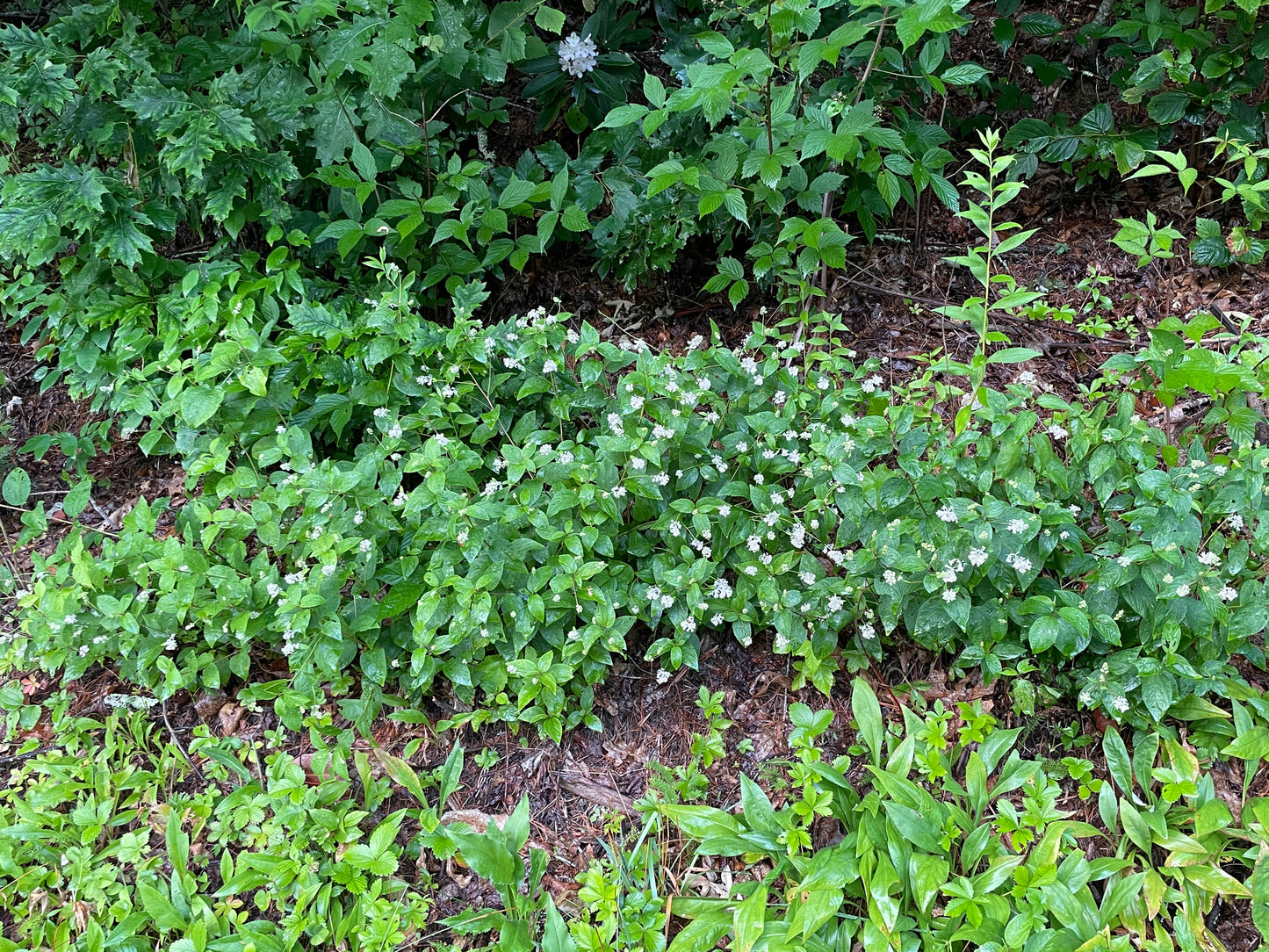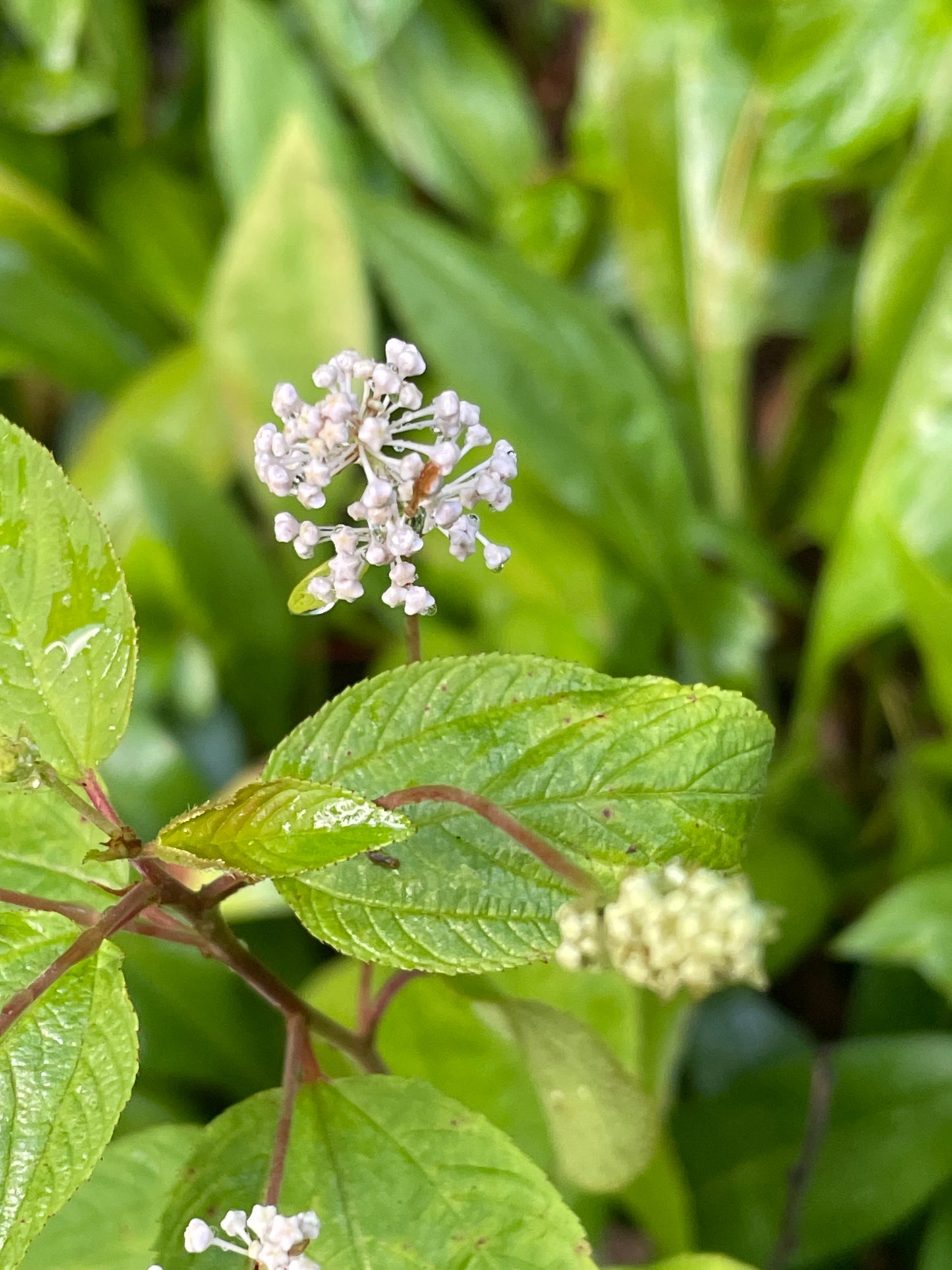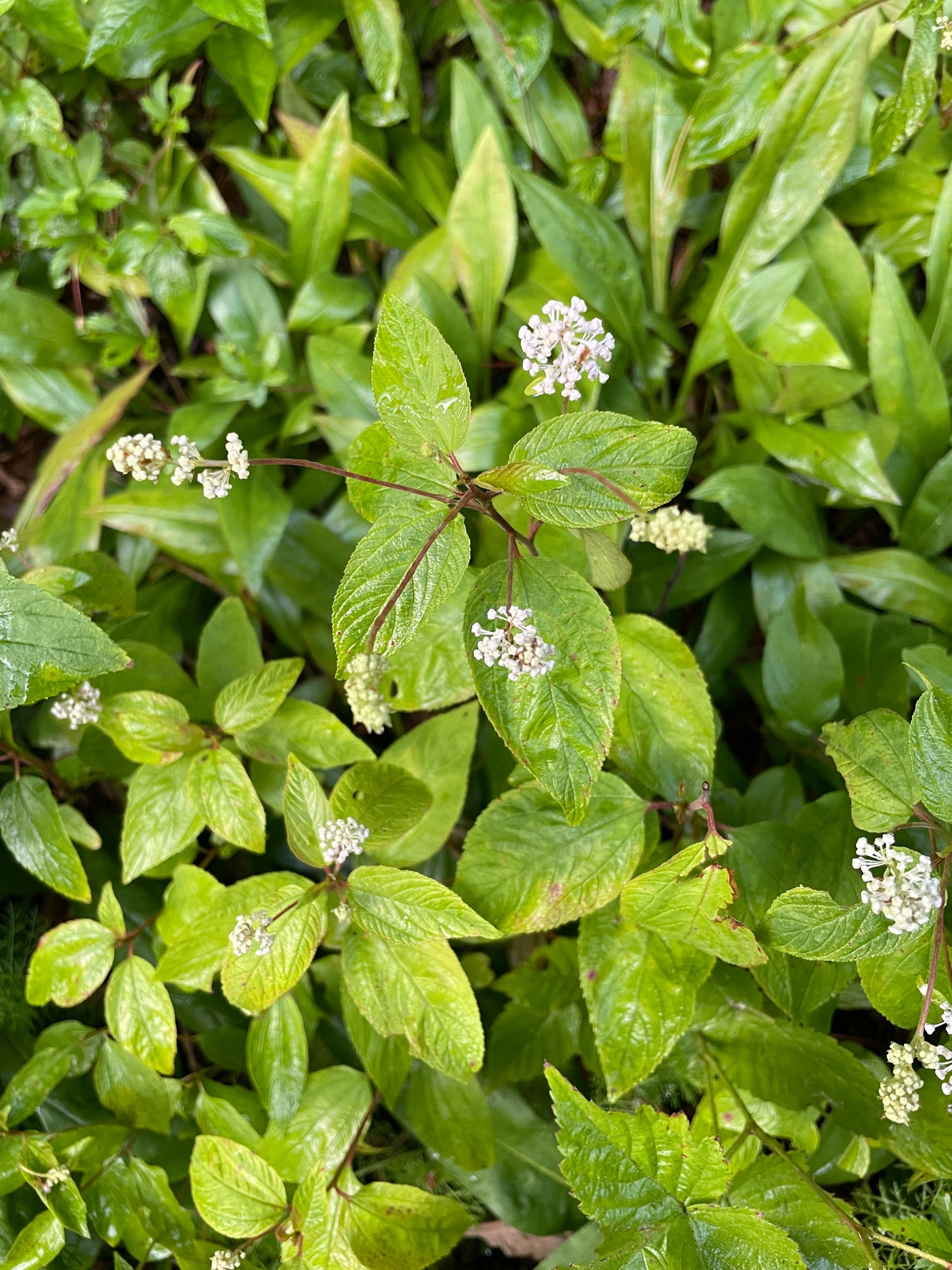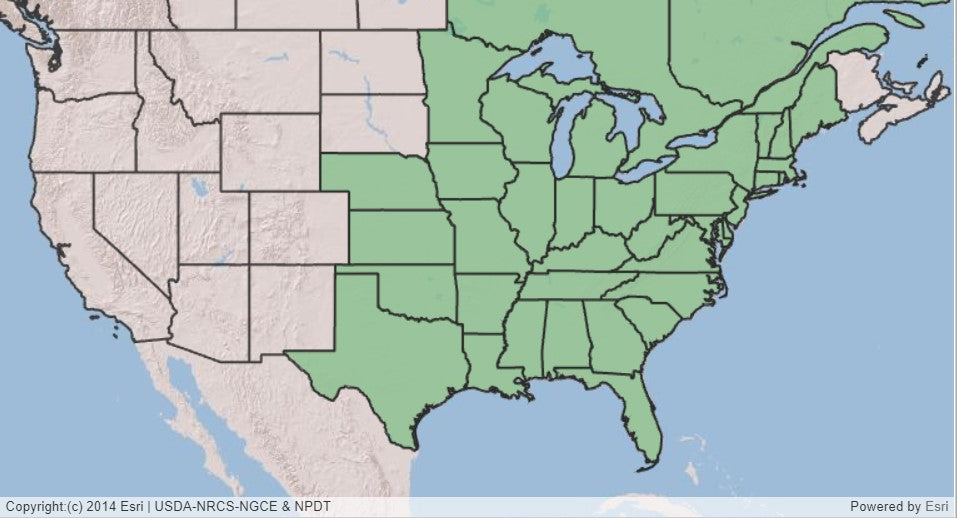Flower Moon Nursery
New Jersey Tea, Ceanothus americanus
New Jersey Tea, Ceanothus americanus
Couldn't load pickup availability
Ceanothus americanus, commonly known as New Jersey tea, is a striking deciduous shrub native to the eastern and central United States. This resilient plant typically grows to a height of 3 to 4 feet with a similar spread, making it a versatile choice for a range of garden settings, including prairies, meadows, and naturalized areas.
One of the standout features of Ceanothus americanus is its abundant clusters of small, fragrant white to creamy white flowers. Blooming in late spring to early summer, these flowers are arranged in dense, rounded clusters and attract a variety of pollinators, including bees and butterflies. The sweet fragrance adds an extra layer of appeal to this charming shrub.
The foliage of Ceanothus americanus is attractive and distinctive, featuring rounded, dark green leaves that provide a lush backdrop throughout the growing season. In fall, the leaves can turn a subtle yellow, adding a gentle touch of color to the garden.
This shrub has a rounded, bushy growth habit with a somewhat open, airy appearance. Its compact size and dense branching make it suitable for use as a low hedge, in mixed borders, or as part of a native plant garden.
Ceanothus americanus thrives in full sun to partial shade and prefers well-drained soils. It is tolerant of poor soil conditions and can handle dry to medium moisture levels, making it a resilient choice for a variety of garden environments.
Hardy in zones 4 to 8, Ceanothus americanus is known for its low-maintenance nature and resistance to many common pests and diseases. It also has historical significance as its leaves were used as a tea substitute during the American Revolutionary War.
With its beautiful blooms, appealing foliage, and adaptability to different growing conditions, Ceanothus americanus is an excellent choice for adding both beauty and ecological value to your garden.
